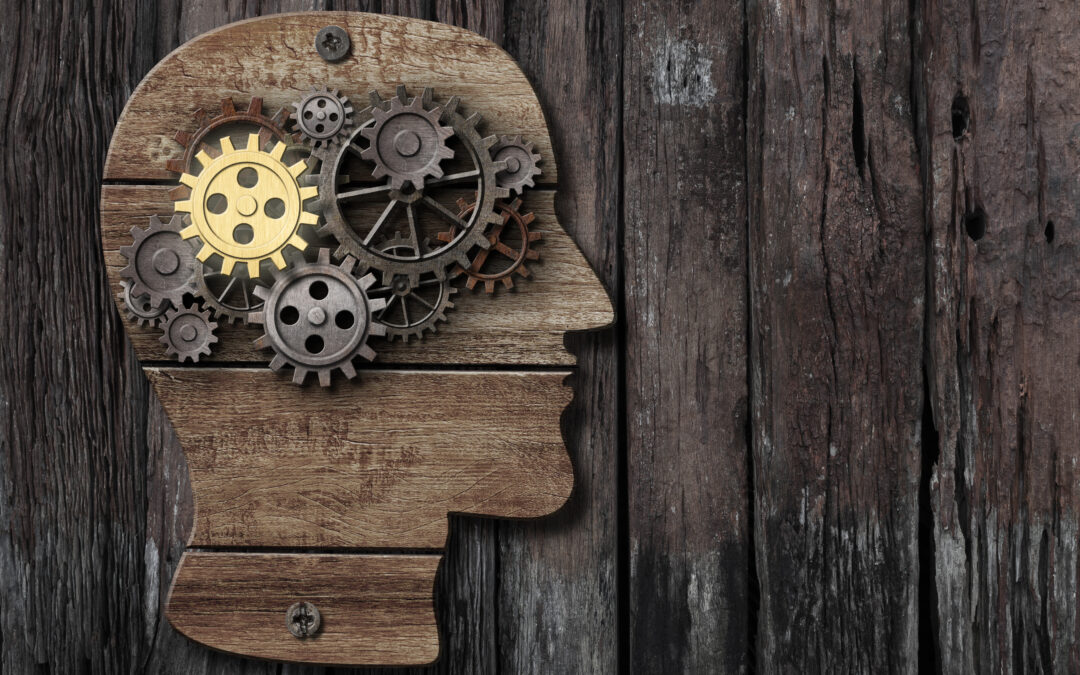Working memory is a higher cognitive construct with limited capacity responsible for maintaining and processing relevant information required in everyday activities proceeded in a goal-directed fashion (Baddeley & Hitch, 1974; Baddeley, 2012; Baddeley, Finch and Allen, 2021). For instance, working memory is involved in situation when someone ask to provide two last instruction points for the second stage of an activity such as a game. Information is being download from long term memory to process it in working memory to perform a task.
Results from earlier studies demonstrate strong and consistent association between working memory measures and other higher order cognitive constructs i.e., reasoning (Kane & Engle, 2002), fluid intelligence (Chuderski, 2013; Oberauer et al., 2005), and attention (Unsworth, Fukuda, Awh, & Vogel, 2014). It has been demonstrated that these constructs play a crucial role in learning outcomes, everyday life abilities such as reading comprehension, math, and problem solving (Shah & Miyake, 1999; Diamond & Ling, 2020). It is also well established from a variety of studies (e.g., McCabe, 2010), that working memory capacity measures strongly correlate (r=.97) with executive functions (EFs). Executive functions are a set of high-level control processes required by individual to successfully thrive in the real world. Family of executive functions include abilities such as updating, inhibitory control, and cognitive flexibility (set shifting) (Stievano & Valeri 2013; Diamond, 2015; Friedman & Miyake, 2018;) is responsible for individual’s self-regulation in goal directed behaviour, due to its influence on low-level processes (Friedman & Miyake, 2018), in each aspect of human existence, from social behaviour through academic achievements (Diamond, 2015). EFs are fragile and prone to external environment, and impairment to any of EFs’ abilities impacts on individual’s life quality. Thus, not surprisingly many researchers have been focusing on a training on working memory domain that would help to expand WM capacity to the point of achievable generalized long-lasting effects contributing to daily life activities (Klingber et al., 2002; 2005).
Within the last two decades, working memory training has become a hot topic in many areas of research due to consistent search for an intervention that would at least revert some cognitive impairments and deficits in clinical population that would to some extent replace intervention in the form of medication, and to help healthy children and adolescents to increase academic performance, as well as work performance in healthy adults due to high demands of everyday life.
Evidence from a number of experimental studies has established that WMT has become a promising intervention to increase WM capacity transferring to improvements in attention in children who suffer from ADHD (Beck, et al., 2010; Green et al., 2012; Egeland, 2013; Grooper et al., 2014., Bigorra et al., 2015), enhancing WM and attention in individuals whose cognition has been compromised by a stroke (Westerberg et al., 2007; Lundqvist et al., 2010; Johansson et al., 2012; Åkerlund et al., 2013; Björkdahl et al., 2013; Peers, 2018), improving cognitive deficits in children with neurological conditions (Di Lieto et al., 2021), improving WM and attention in childhood cancer survivors who suffer cognitive issues on developing brain due to cancer treatment (Hardy, 2012; Conklin, 2015; 2017; Carlsson-Green, 2017), improving fluid intelligence (Jaeggi, et al., 2008; 2010), and enhance academic achievements and intellectual attainment (e.g. Bergman-Nutley & Klingberg, 2014; Karbach et al., 2014; Berger et al. 2020).
However, many other studies trying to replicate those successful results have failed to show any significant advantages of using WMT on cognitive domain other than within domain of WM (e.g., Holmes et al., 2009; Chacko et. al., 2013; Dunning et al., 2013; Yin et al., 2015; Partanen et al. 2015; Fälth et al., 2015; Roberts et al. 2016), even though a study was said to be a true replication of a successful study, as it was shown by Chooi and Thompson (2012) unsuccessfully replicating original study of Jaeggi and colleagues (2008).
References
Åkerlund, E., Esbjörnsson, E., Sunnerhagen, K. S., & Björkdahl, A. (2013). Can computerized working memory training improve impaired working memory, cognition and psychological health? Brain Injury, 27(13-14), 1649-1657. https://doi.org/10.3109/02699052.2013.830195
Baddeley, A. (2012). Working memory: Theories, models, and controversies. Annual Review of Psychology, 63, 1-29. https://doi.org/10.1146/annurev-psych-120710-100422
Baddeley, A. D., & Hitch, G. (1974). Working memory. In G. H. Bower (Ed.), The psychology of learning and motivation: Advances in research and theory (Vol. 8, pp. 47-89). Academic Press.
Baddeley, A., Finch, J. P., & Allen, R. J. (2021). Working memory: The state of the science. Annual Review of Psychology, 72, 1-25. https://doi.org/10.1146/annurev-psych-010419-051352
Beck, S. J., Hanson, C. A., Puffenberger, S. S., Benninger, K. L., & Benninger, W. B. (2010). A controlled trial of working memory training for children and adolescents with ADHD. Journal of Clinical Child & Adolescent Psychology, 39(6), 825-836. https://doi.org/10.1080/15374416.2010.517162
Berger, E. M., Fehr, E., Hermes, H., Schunk, D., & Winkel, K. (2020). The impact of working memory training on children’s cognitive and noncognitive skills. SSRN Electronic Journal. https://doi.org/10.2139/ssrn.3622985
Bergman-Nutley, S., & Klingberg, T. (2014). Effect of working memory training on working memory, arithmetic and following instructions. Psychological Research, 78(6), 869-877. https://doi.org/10.1007/s00426-014-0614-0
Bigorra, A., Garolera, M., Guijarro, S., & Hervás, A. (2015). Long-term far-transfer effects of working memory training in children with ADHD: A randomized controlled trial. European Child & Adolescent Psychiatry, 25(8), 853-867. https://doi.org/10.1007/s00787-015-0804-3
Björkdahl, A., Åkerlund, E., Svensson, S., & Esbjörnsson, E. (2013). A randomized study of computerized working memory training and effects on functioning in everyday life for patients with brain injury. Brain Injury, 27(13-14), 1658-1665. https://doi.org/10.3109/02699052.2013.830196
Carlsson-Green, B., Puschmann, A.-K., Petersson, L. M., Lundgren, J., Tomaszewska-Andersz, E., & Lönnerblad, M. (2017). Computer-based training for working memory in children with acquired brain injury: A pilot study. Brain Injury, 31(13-14), 1856-1865. https://doi.org/10.1080/02699052.2017.1346284
Chacko, A., Bedard, A. C., Marks, D. J., Feirsen, N., Uderman, J. Z., Chimiklis, A., Rajwan, E., Cornwell, M., Anderson, L., Zwilling, A., & Ramon, M. (2013). A randomized clinical trial of Cogmed Working Memory Training in school-age children with ADHD: A replication in a diverse sample using a control condition. Journal of Child Psychology and Psychiatry, 55(3), 247-255. https://doi.org/10.1111/jcpp.12146
Chooi, W.-T., & Thompson, L. A. (2012). Working memory training does not improve intelligence in healthy young adults. Intelligence, 40(6), 531-542. https://doi.org/10.1016/j.intell.2012.07.004
Chuderski, A. (2013). When are fluid intelligence and working memory isomorphic and when are they not? Intelligence, 41(4), 244-262. https://doi.org/10.1016/j.intell.2013.04.003
Conklin, H. M., Ogg, R. J., Ashford, J. M., Scoggins, M. A., Zou, P., Clark, K. N., Martin-Elbahesh, K., Hardy, K. K., Merchant, T. E., Jeha, S., Huang, L., & Zhang, H. (2015). Computerized cognitive training for amelioration of cognitive late effects among childhood cancer survivors: A randomized controlled trial. Journal of Clinical Oncology, 33(33), 3894-3902. https://doi.org/10.1200/jco.2015.61.6672
Conklin, H. M., Ashford, J. M., Clark, K. N., Martin-Elbahesh, K., Hardy, K. K., Merchant, T. E., Ogg, R. J., Jeha, S., Huang, L., & Zhang, H. (2017). Long-term efficacy of computerized cognitive training among survivors of childhood cancer: A single-blind randomized controlled trial. Journal of Clinical Oncology, 35(18), 2059-2065. https://doi.org/10.1200/jco.2016.70.7257
Di Lieto, M. C., Pecini, C., Castro, E., Inguaggiato, E., Cecchi, F., Dario, P., Cioni, G., & Sgandurra, G. (2021). Improving executive functions in primary school: A randomized controlled trial for children with developmental language disorder. Journal of Speech, Language, and Hearing Research, 64(3), 1079-1096. https://doi.org/10.1044/2020_jslhr-20-00326
Diamond, A. (2015). Effects of physical exercise on executive functions: Going beyond simply moving to moving with thought. Annals of Sports Medicine and Research, 2(1), 1011.
Diamond, A., & Ling, D. S. (2020). Review of the evidence on, and fundamental questions about, efforts to improve executive functions, including working memory. In J. M. Novick, M. F. Bunting, M. R. Dougherty, & R. W. Engle (Eds.), Cognitive and working memory training: Perspectives from psychology, neuroscience, and human development (pp. 143-431). Oxford University Press.
Dunning, D. L., Holmes, J., & Gathercole, S. E. (2013). Does working memory training lead to generalized improvements in children with low working memory? A randomized controlled trial. Developmental Science, 16(6), 915-925. https://doi.org/10.1111/desc.12068
Egeland, J., Aarlien, A. K., & Saunes, B.-K. (2013). Few effects of far transfer of working memory training in ADHD: A randomized controlled trial. PLoS ONE, 8(10), e75660. https://doi.org/10.1371/journal.pone.0075660
Fälth, L., Jaensson, L., & Johansson, K. (2015). Working memory training – a cogmed intervention. International Journal of Learning, Teaching and Educational Research, 14(2), 28-35.
Friedman, N. P., & Miyake, A. (2018). Unity and diversity of executive functions: Individual differences as a window on cognitive structure. Cortex, 86, 186-204. https://doi.org/10.1016/j.cortex.2016.04.023
Green, C. T., Long, D. L., Green, D., Iosif, A.-M., Dixon, J. F., Miller, M. R., Fassbender, C., & Schweitzer, J. B. (2012). Will working memory training generalize to improve off-task behavior in children with attention-deficit/hyperactivity disorder? Neurotherapeutics, 9(3), 639-648. https://doi.org/10.1007/s13311-012-0124-y
Gropper, R. J., Gotlieb, H., Kronitz, R., & Tannock, R. (2014). Working memory training in college students with ADHD or LD. Journal of Attention Disorders, 18(4), 331-345. https://doi.org/10.1177/1087054713516490
Hardy, K. K., Willard, V. W., Allen, T. M., & Bonner, M. J. (2012). Working memory training in survivors of pediatric cancer: A randomized pilot study. Psycho-Oncology, 22(8), 1856-1865. https://doi.org/10.1002/pon.3222
Holmes, J., Gathercole, S. E., & Dunning, D. L. (2009). Adaptive training leads to sustained enhancement of poor working memory in children. Developmental Science, 12(4), F9-F15. https://doi.org/10.1111/j.1467-7687.2009.00848.x
Jaeggi, S. M., Buschkuehl, M., Jonides, J., & Perrig, W. J. (2008). Improving fluid intelligence with training on working memory. Proceedings of the National

As a research scientist in cognitive neuroscience and psychology, I write a blog exploring computational modeling and gamified working memory training. I share insights from my research on how these approaches impact learning and cognition in both typical and clinical populations, with a focus on cognitive rehabilitation for brain injuries, neurodegenerative, and neurodevelopmental conditions. My blog also covers cognitive, emotional, and behavioral assessment, the influence of biopsychosocial factors, and the application of machine learning in neuropsychological interventions. By translating complex science into accessible content, I aim to inform professionals and the public about brain health and cognitive science.
Dorota Styk


